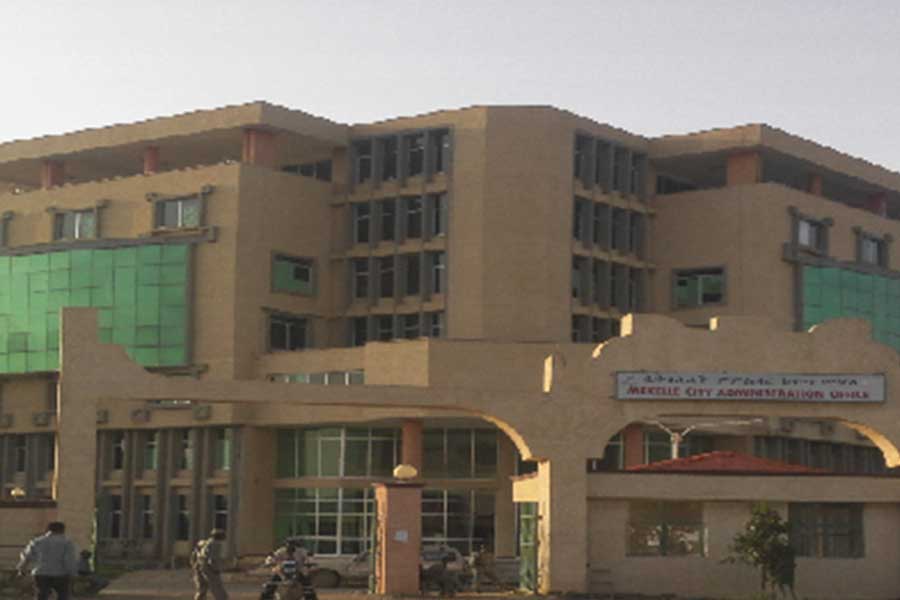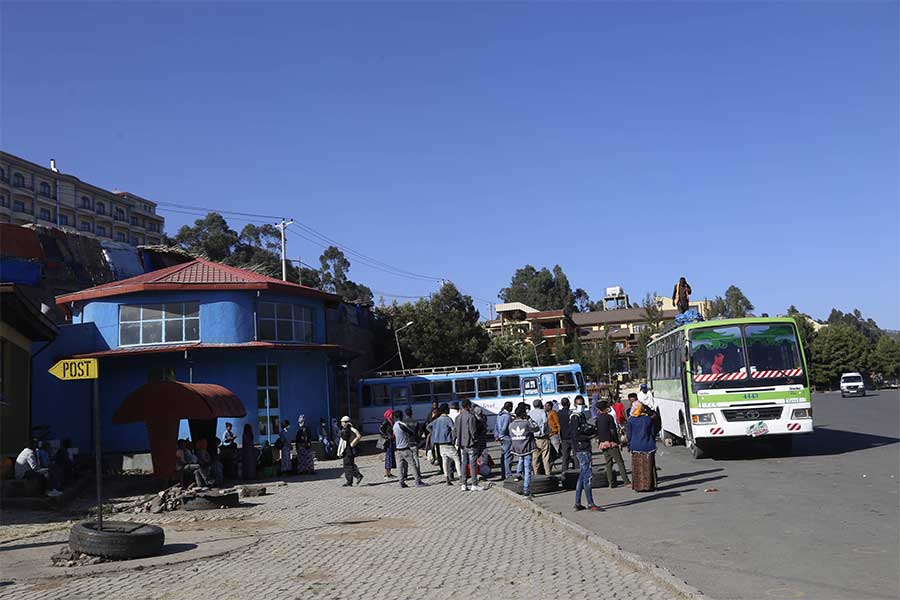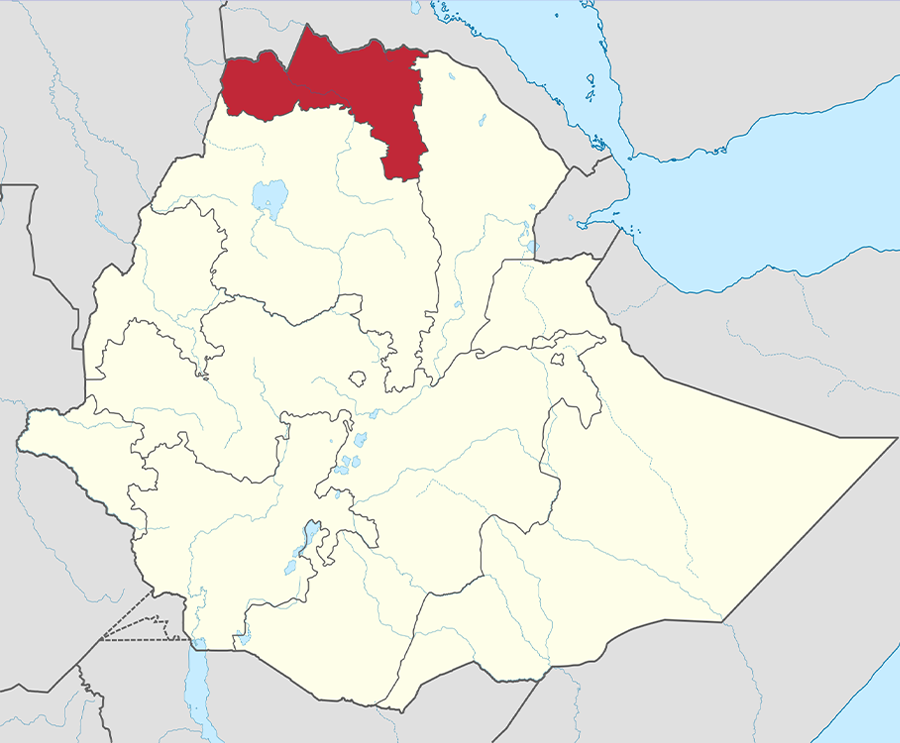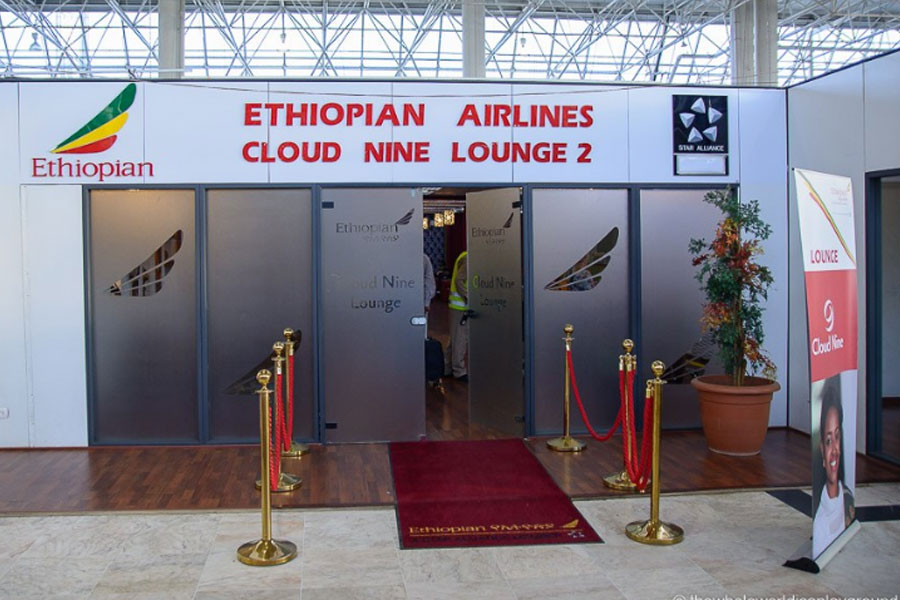
Radar | Sep 03,2022
.
During one of his sporadic encounters with members of the media last week, Prime Minister Abiy Ahmed (PhD) spoke on the issue of national elections that are planned to be held in 2020. He disclosed a decision made by EPRDF’s Executive Committee in a recently held meeting to ensure that elections take place on schedule.
It is helpful for the public to hear from the leader that voters will have their constitutional right to elect their representatives in government will be respected. What was not helpful is the Prime Minister’s ambiguity on the subject, which still left room for more speculation. But the concern of many the country may not be ready to handle such delicate contestations for power and the elections themselves may pull society apart should be understood.
Indeed, Ethiopia is entering one of its most trying phases by holding local and national elections next year. The process of democratisation will not be as contained as the political liberalisation the country has passed through during the past 18 months. In an environment charged with extreme political polarisation, growing income inequality and worrisome high unemployment, the days ahead can be too scary to contemplate.
Ethiopia needs strategic leadership at its helm and elites representing various interests who understand the knot the country is entangled in. The nation needs leaders that have the wisdom to make all the right decisions and have the courage to confront the radicals in their midst.
Political liberalisation does not necessarily lead to democratisation; not at least in every case where it has been tried and tested. Societies which confronted political polarisation and growing income inequality have seen not only democracy weakened, but also a threat to the existence of the very state itself.
The Ethiopian political space today is littered with actors – parties, activists and even some officeholders - who are treating their opponents as mortal enemies. They exaggerate their role as the only saviours capable of standing for their respective regions or kilil, as they are known locally. They assume the role of representing their own ethnic communities, while those that oppose them are seen as threats, taking maximalist positions on every issue with little regard to the national project.
Hateful public discourses and aggressive stands are taken, demonizing the other side instead of arguing as citizens that belong to one nation. They behave as if the common ground does not exist. Unfortunately, these views are no longer just held on the margins. This is not helping the project of building faith in democratic institutions and the entire governance structure.
For democratisation to take root after the kind of political liberalisation Ethiopia has taken, there needs to be one political arena of decision. It is important to take note that multiethnic societies such as Ethiopia with this type of federal structure allow several lower-level political arenas to emerge, displacing the national arena as the sole source of shared identity. The absence of autonomous and enduring institutions does create the vacuum, allowing polarisation to grow and limiting the state’s ability to hold it in check.
The central arena cannot hold where parliament becomes an echo chamber of the executive branch of government, instead of a deliberative body that legislates on behalf of the general will of the people. It has little chance of surviving in a place where the judiciary is sidelined into irrelevance by its lack of courage to fulfill its constitutional mandate, an executive that operates in a bipolar manner of either extreme bullying beyond its constitutionally mandated powers or in complete negligence of its responsibilities. There hardly exists healthy democratic discourse where the fourth estate, the media, failed in its professional and ethical duties as an ineffective civil society.
A democratic state - the central arena - cannot survive without the proper functioning of these institutions. If it does, it can only be through the use of illegitimate force, coercion and state repression - an exercise that is all too common in Ethiopia’s past. It never endured. Not without a challenge.
Building a democratic state requires fidelity to the idea that despite differences, citizens share a historical past with all its problems and a common destiny with all its promises. While working to correct some imperfections, there can be an admission that citizens are all in it together. They succeed or fail together. There has to be a national project - the central arena - to build and keep a single democratic, economic and political community.
In today’s Ethiopia, a polarised society is emerging from an authoritarian political environment and entering a phase of state fragmentation but without strong and autonomous constitutional institutions. The various elites are forming political classes that seem to have taken their eyes off the central political arena to create multiple arenas.
Increasingly, these political forces have little shared identity. They do not seem to see eye to eye on history, boundaries, the national anthem, the flag or even the name of their capital. The very “stateness” of Ethiopia - whether to preserve its civilisational state or reconstruct it – seems to be up for contestation.
It will no doubt be an uphill task for the centre to hold in the weight of such bitter contestation of political forces activated in a polarised electorate. The outcome will be a doubling down on political liberalisation and economic reform, risking state fragmentation or trying to preserve the state using repressive means.
The way out of the incoming mess has to start by strengthening democratic institutions, which will help to reinforce the central political arena. But these institutions have to be autonomous, as they will need to be run by independent and highly-qualified people. The next step is looking into and reforming the incentive structure within the political system.
If the governance structure rewards polarisation over convergence, further fragmentation of the central arena cannot be stopped. Among these has to be the beginning of a community-level and result-oriented constructive dialogue. Creating the ‘islands of cooperation’ between communities to break the ‘us’ versus ‘them’ mantra should help in building trust by showing the transparency of intentions.
It has now become critical that there be a process to encourage citizen engagement across identity fault lines, so that they are empowered to pressure the elites to come to the round-table and make a deal.
The strengthening of high-quality journalism that can counter disinformation and myth in the era of post-truth politics is essential. The manipulation of truth by knave politicians to aggrandize power has to be challenged by fearless and unbiased reporting. Without such platforms that help create an informed citizenry, there cannot be a free and fair election under a democratic state.
No doubt Ethiopia is entering the most dangerous phase beginning next year. Polarised communities, growing inequality and the absence of civic virtue in public discourse will define the process. The choices its elites will make in making painful, but necessary compromises can help it chart a different course. They will have to come to terms with the fact that unrelenting demand informed by victim Olympics will lead them and their foes into the abyss.
They have to realise that it is not so much about solving all the problems in one grand sweep or reconciling their differences at one sitting. It is instead about agreeing on the rules of engagement and the independence and competence of the constitutional institutions that should intermediate their contestations for political power. It is about taking the contestations away from the streets and the battlefield to the legal and institutional platforms, whether in parliament or the judiciary under a central political arena.
No country is destined to face historical determinism. Ethiopia is no different. The elites have to be wise enough to recognise that the loss of the political centre and its central initiative will have far dire consequences than an outcome from one electoral cycle.
PUBLISHED ON
[ VOL
, NO
]

Radar | Sep 03,2022

Fortune News | Aug 22,2020

Radar | Aug 29,2020

Radar | Jan 01,2023

Agenda | Dec 12,2020

Radar | Apr 24,2023

Radar | Sep 24,2022

Fortune News | Nov 04,2020

Viewpoints | Jan 04,2020

Fortune News | Apr 26,2019

My Opinion | 131819 Views | Aug 14,2021

My Opinion | 128203 Views | Aug 21,2021

My Opinion | 126147 Views | Sep 10,2021

My Opinion | 123767 Views | Aug 07,2021

Dec 22 , 2024 . By TIZITA SHEWAFERAW
Charged with transforming colossal state-owned enterprises into modern and competitiv...

Aug 18 , 2024 . By AKSAH ITALO
Although predictable Yonas Zerihun's job in the ride-hailing service is not immune to...

Jul 28 , 2024 . By TIZITA SHEWAFERAW
Unhabitual, perhaps too many, Samuel Gebreyohannes, 38, used to occasionally enjoy a couple of beers at breakfast. However, he recently swit...

Jul 13 , 2024 . By AKSAH ITALO
Investors who rely on tractors, trucks, and field vehicles for commuting, transporting commodities, and f...

Jul 6 , 2025 . By BEZAWIT HULUAGER
The federal legislature gave Prime Minister Abiy Ahmed (PhD) what he wanted: a 1.9 tr...

Jul 6 , 2025 . By YITBAREK GETACHEW
In a city rising skyward at breakneck speed, a reckoning has arrived. Authorities in...

Jul 6 , 2025 . By NAHOM AYELE
A landmark directive from the Ministry of Finance signals a paradigm shift in the cou...

Jul 6 , 2025 . By NAHOM AYELE
Awash Bank has announced plans to establish a dedicated investment banking subsidiary...